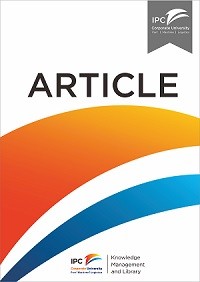Article
A reexamination of the effects of just-in-time on inbound logistics
Just‐In‐Time (JIT) manufacturing remains an important issue and research efforts are beginning to examine its impact on other business functions. This paper proposes a theoretical model that relates the extent of JIT implementation to changes in inbound logistics practices and outcomes. Exploratory factor analysis was applied to responses from a large‐scale survey. Six underlying constructs were identified and retained, and eleven hypotheses concerning the causal relationships between these constructs were tested using LISREL. Analysis indicates that JIT: (1) improves supplier operations, (2) enhances transportation operations with respect to inbound carriers, (3) reduces the level and improves the management of inventories, (4) does not cause overall inbound logistics costs to increase, and (5) increases the quality and performance of inbound logistics.
Ketersediaan
Informasi Detail
- Judul Seri
-
The International Journal of Logistics Management
- No. Panggil
-
ATC LO VON a
- Penerbit
- Toledo : Emerald Insight., 1995
- Deskripsi Fisik
-
15 p.
- Bahasa
-
English
- ISBN/ISSN
-
-
- Klasifikasi
-
LO
- Tipe Isi
-
-
- Tipe Media
-
-
- Tipe Pembawa
-
online resource
- Edisi
-
Vol. 6 Issue: 2, pp.25-38
- Subjek
- Info Detail Spesifik
-
-
- Pernyataan Tanggungjawab
-
Michael Tracey
Versi lain/terkait
| Judul | Edisi | Bahasa |
|---|---|---|
| Supplier relationship management as a macro business process | Vol. 17 Iss 3 pp. 337 - 352 | en |
Lampiran Berkas
Komentar
Anda harus masuk sebelum memberikan komentar

 Karya Umum
Karya Umum  Filsafat
Filsafat  Agama
Agama  Ilmu-ilmu Sosial
Ilmu-ilmu Sosial  Bahasa
Bahasa  Ilmu-ilmu Murni
Ilmu-ilmu Murni  Ilmu-ilmu Terapan
Ilmu-ilmu Terapan  Kesenian, Hiburan, dan Olahraga
Kesenian, Hiburan, dan Olahraga  Kesusastraan
Kesusastraan  Geografi dan Sejarah
Geografi dan Sejarah